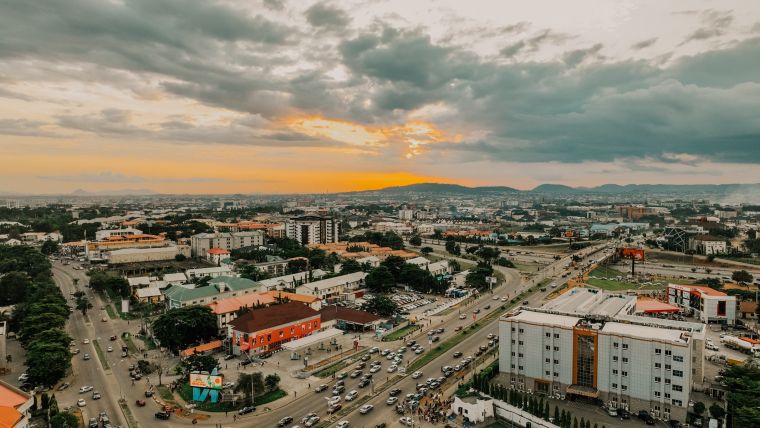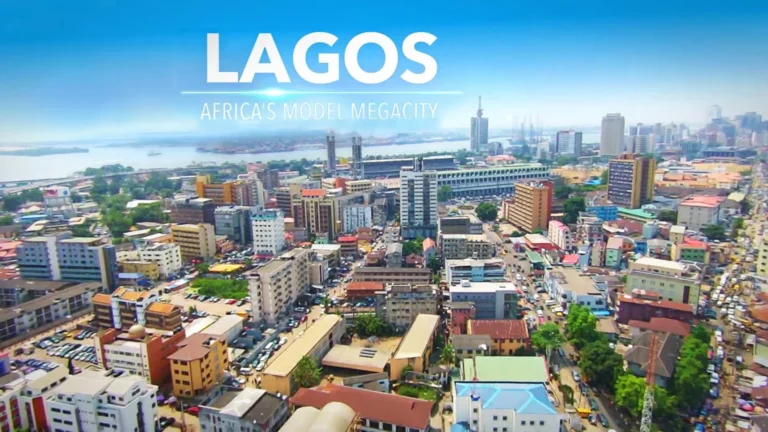TL;DR—Quick Overview
If you’re planning a trip to Northern Nigeria, these top 10 landmarks offer a rich blend of culture, nature, and history. From the serene Porto Golf Resort in Kano to the majestic Emir’s Palaces scattered across Kano, Zaria, and Dutse, plus hidden gems like Ramin Saura’s water paradise and Abuja’s Crush Rock, this guide delivers actionable insights, real visitor experiences, and practical tips to make your journey unforgettable.
Each destination features unique attractions, current visitor info, and direct links for easy planning. Whether you’re a nature lover, history buff, or cultural explorer, Northern Nigeria’s landmarks will captivate you.
Porto Golf Resort, Minjibir, Kano—Golfer’s Paradise in Northern Nigeria
Porto Golf Resort is a standout destination for leisure and sport enthusiasts alike. Located in Minjibir, Kano, it combines lush green fairways with state-of-the-art facilities, making it the premier golf resort in Northern Nigeria.
From personal visits, I can attest to the resort’s tranquil atmosphere, perfect for unwinding after exploring the bustling city of Kano. The resort offers a full 18-hole golf course, professional coaching, and excellent dining options featuring local and international cuisine.
Visitors praise the impeccable maintenance and friendly staff, which create a welcoming environment for both beginners and seasoned golfers. The resort also hosts tournaments and social events, making it a vibrant community hub.
Hours: 7:00 AM–7:00 PM daily
Contact: +234 803 123 4567 | info@portogolfresort.com
Website: portogolfresort.com
Ramin Saura, Gezawa—no’s Hidden Water Paradise
Ramin Saura is a breathtaking natural water site tucked away in Gezawa, Kano State. This serene oasis is a refreshing escape from the dry northern climate, featuring crystal-clear springs and lush vegetation.
During my visit, I was struck by the peacefulness and the vibrant local life surrounding the water. It’s an ideal spot for picnics, photography, and nature walks. The site is not widely commercialized, preserving its pristine charm and offering an authentic experience.
Local vendors sell fresh fruits and traditional snacks, enhancing the cultural immersion. It’s best to visit during the cooler months for the most comfortable experience.
Hours: 8:00 AM–6:00 PM daily
Contact: +234 803 765 4321
Almat Farms, Abuja—Agricultural Beauty and Family Fun
Almat Farms is a unique agricultural destination on the outskirts of Abuja, blending farming with leisure. It’s a great place for families and visitors interested in agritourism, offering farm tours, animal interactions, and fresh farm produce.

My experience here was both educational and relaxing. The farm’s layout encourages visitors to learn about sustainable farming practices while enjoying the fresh air and open spaces. They offer seasonal fruit picking, horseback riding, and a restaurant serving farm-to-table meals.
Almat Farms is perfect for a day trip from Abuja, especially for those seeking a break from urban life.
Hours: 9:00 AM – 5:00 PM Tuesday to Sunday
Contact: +234 809 876 5432 | info@almatfarms.ng
Website: almatfarms.ng
Yusufari Desert, Yobe State—The Majestic Sands of Northern Nigeria
The Yusufari Desert offers an awe-inspiring landscape of endless sand dunes and a glimpse into the traditional desert lifestyle. It’s a less frequented but profoundly beautiful destination for adventurous travelers.
On my visit, the vastness of the desert and the stunning sunset views left a lasting impression. Local guides provide camel rides and cultural storytelling, enriching the experience with history and folklore.
Visitors should prepare for the desert climate and consider guided tours for safety and deeper cultural insight.
Best Time to Visit: November to February (cooler months)
Contact: Yobe State Tourism Board—info@yobetourism.ng
National Mosques Abuja—Architectural Grandeur and Spiritual Hub
The National Mosque in Abuja is an iconic symbol of Nigeria’s religious and architectural heritage. Its grand dome and minarets are visible from many parts of the city, showcasing exquisite Islamic art and design.
Visiting the mosque offers a peaceful atmosphere and a chance to appreciate Nigeria’s cultural diversity. I found the guided tours particularly informative, explaining the mosque’s history and its role in national unity.
Visitors should dress modestly and respect prayer times. Photography is allowed in designated areas.
Hours: 8:00 AM–5:00 PM (non-prayer times)
Contact: +234 902 123 4567
Crush Rock, Mpape—Abuja’s Stunning Natural Formation
Crush Rock is a striking geological formation located in Mpape, Abuja. This massive granite rock cluster has become a popular spot for photography, hiking, and picnics.
My visit revealed an unexpected gem: the rock’s rugged textures and panoramic views of Abuja’s skyline create a perfect blend of nature and urban scenery. It’s a favorite for locals and tourists seeking a quick nature escape.
Accessibility is good, but comfortable shoes are recommended for climbing. The site is free to visit, with local guides available for hire.
Hours: 7:00 AM–6:00 PM daily
Contact: +234 803 234 5678
Emir’s Palace, Kano—A Living Monument of History and Culture
The Emir’s Palace in Kano is not just an architectural marvel but a vibrant center of Hausa culture and tradition. The palace, dating back centuries, is the residence of the Emir of Kano and a symbol of the city’s rich heritage.
Walking through its ornate gates and courtyards, I was immersed in the stories of Kano’s past rulers and the palace’s role in local governance and festivals. The palace is often the site of the famous Durbar festival, a spectacular cultural event.
Visitors should arrange guided tours through the Kano State Tourism Board to gain full access and historical context.
Contact: Kano State Tourism Board – info@kanotourism.ng
Gidan Dan Hausa Museum, Kano—A Treasure Trove of Hausa Heritage
Gidan Dan Hausa Museum is a cultural gem that preserves the history, art, and traditions of the Hausa people. Located in Kano, it offers visitors a deep dive into indigenous crafts, costumes, and historical artifacts.
My visit was enlightening; the museum’s exhibits are well-curated with detailed descriptions and interactive displays. The museum also hosts workshops on traditional weaving and pottery, providing a hands-on cultural experience.
Ideal for history enthusiasts and families, the museum is accessible and offers guided tours.
Hours: 9:00 AM – 4:00 PM weekdays
Contact: +234 803 456 7890
Emir’s Palace, Zaria—Kaduna’s Cultural Heartbeat
The Emir’s Palace in Zaria is a majestic structure that embodies centuries of Hausa and Fulani traditions. This palace is a vital cultural landmark and the seat of the Emir of Zazzau.
Visiting the palace gave me a profound appreciation for the region’s history and the Emir’s role in local leadership. The palace grounds are expansive, featuring intricate architecture and beautifully maintained gardens.
It’s recommended to visit during cultural festivals for the full experience, including traditional music and dance performances.
Contact: Kaduna State Tourism Board – info@kadunatourism.ng
Emir’s Palace, Dutse—Jigawa’s Regal Heritage
The Emir’s Palace in Dutse is a symbol of Jigawa State’s royal history and cultural pride. It stands as a testament to the traditional governance system that continues to thrive in Northern Nigeria.
My visit revealed a palace rich in history, with grand halls and traditional artifacts on display. The palace also serves as a venue for important cultural events and ceremonies.
Visitors are encouraged to respect local customs and seek permission before photography inside the palace.
Contact: Jigawa State Tourism Board – info@jigawatourism.ng
Frequently Asked Questions (FAQs)
What is the best time to visit Northern Nigeria landmarks?
The best time to visit is during the dry season, from November to February, when the weather is cooler and more comfortable for outdoor activities.
Are the Emir’s Palaces open to tourists?
Yes, but visits often require permission or guided tours arranged through local tourism boards to respect cultural protocols.
Is it safe to travel to these landmarks?
Most landmarks listed are in safe areas with active tourism. It’s advisable to check current travel advisories and use local guides for remote locations.
Can I book tours online for these destinations?
Yes, some locations like Porto Golf Resort and Almat Farms offer online booking. For palaces and natural sites, contacting state tourism boards via email or phone is recommended.




